There have been many attempts to expand cinema beyond the frames of the black box of the screen. Expanded cinema – a term first used in the mid-’60s by Stan Vanderbeek, has traditionally been very difficult to define, involving many styles and techniques from the pop-spectacular to the minimalist materialist. With Live Live Cinema, a New Zealand-based Jumpboard Productions happening directed by Oliver Driver and created and composed by Leon Radojkovic, the cinema screen attempts to become a three-dimensional performance, where the characters explode, literally, onto the stage. Herk Harvey’s black and white B movie classic Carnival of Souls and Francis Ford Coppola’s Dementia 13 are brought to the stage as part of the Barbican’s programme of live film-music events, in collaboration with the BFI’s huge Gothic season.
With Live Live Cinema, the film is screened in the background, as actors, musicians and a lone Foley artist perform the film’s action on stage. Previously we’ve seen bands performing a live score, maybe even actors performing in front of the film. This seeks to combine both, with the added twist of recreated sound effects, as all soundFX/foley is produced live, utilising a combination of mechanical and digital sound design which the audience see occurring on stage. Every splash of blood and slurp of water comes out of a soundbox, a veritable Berberian Sound Studio for the stage. We spoke to Leon Radojkovic about what makes Live Live Cinema different from other cinematic happenings.
What is it about Live Live Cinema that you think makes it stand out from the other expanded cinema, ‘happening’ type events?
The fact that instead of, for example, simply taking a silent film and having an ensemble perform a new score to it (or even the original score), we work with films from the sound era, meaning that not only is there a new score performed live, but also a cast of voice actors, each overdubbing multiple roles live, and a foley artist working like a maniac to create every sound effect.
What did you want to set out to do in the first place – how do you think a live performed audio effect the overall audience response?
Essentially the aim was to create a vibrant and thrilling live cinema experience. In the same way live music is more visceral than a recording, and theatre can be more visceral than film, cinema combined with live elements seems to create an experience that is much more engaging and immediate than your usual trip to the multiplex. Another effect is that much of the apparatus of cinema, which is normally hidden from the audience, is fully exposed, giving an insight into some of the techniques which go on behind the scenes, but by their very nature are intended to be unnoticeable in the finished product.
After Berberian Sound Studio, there seems to be a real interest in giallo B-movie horror sound effects. Can you tell us a little more about the lone Foley artist and his role in the production?
Gareth [the Live Live Cinema Foley artist] is a marvel, and a pleasure to watch. An incredible amount of creativity, lateral thinking and coordination goes into figuring out how to create believable sounds, often from strange and mundane everyday objects. Not only that, but he has to get the timing exactly right, for the entire duration of the film, and often perform a number of effects simultaneously.
How did you go about choosing the films to perform and what characteristics do they have to have to come alive on stage?
To be a good fit for our format, the film basically needs to be a rough diamond. A real deal B-movie, but with some strong redeeming quality or qualities. For example, both Carnival of Souls and Dementia 13 have striking visual sensibilities, but this is offset by some extremely dodgy plotting and acting. The reason for this is that the whole exercise is aimed at trying to actually improve on the film in its original form. To take a great film with great performances, plot and music would be completely redundant. If the film is a bit, shall we say, uneven, however, this give us opportunities to tweak and polish things, push and pull in different directions, and really breathe new life into it.
What have audience reactions been like in the Antipodes? And are you working here with a very different space?
The reactions have been fantastic. We have never performed in a church before, but it seems strangely appropriate given some of the subject matter the two films deal with.
What other films would you like to bring alive to the stage?
I would love to do a big-budget, brainless Hollywood action film and see what happens.
By Sophia Satchell-Baeza
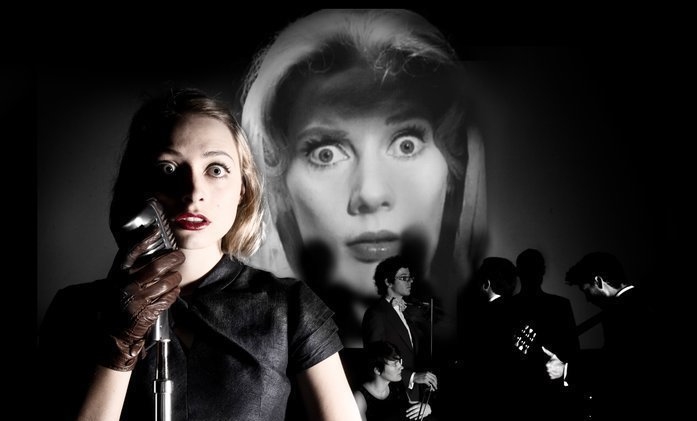
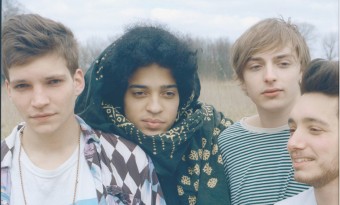

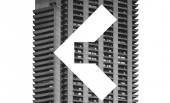
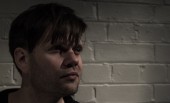
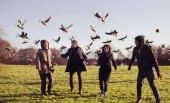
Follow us
Follow us on Facebook Follow us on Twitter Follow us on Google+ Subscribe our newsletter Add us to your feeds